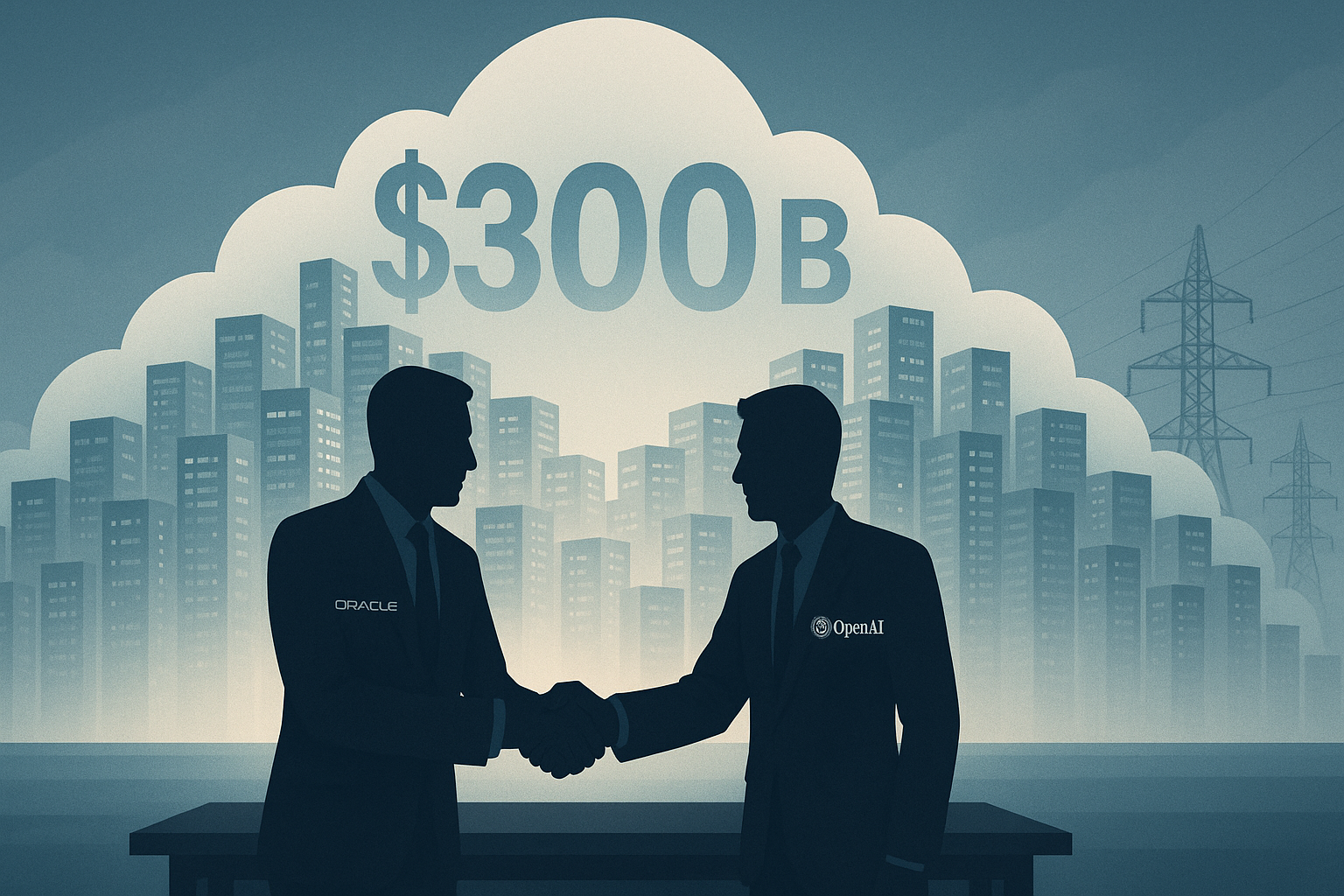Let me get this straight. Oracle and OpenAI just inked a $300 billion cloud computing deal. That's billion with a B. And not just one or two—three hundred of them.
For perspective, that's roughly the GDP of Finland we're talking about. Or, if you prefer corporate comparisons, approximately what Coca-Cola is worth as a company. It's a number so large it almost loses meaning.
The power requirements alone tell you everything you need to know about the scale here—4.5 gigawatts. That's more than twice the Hoover Dam's output. Enough to power some four million homes, or apparently, to train whatever AI system OpenAI has cooking next.
I've been covering tech deals since the frothy days of the late '90s, and this one has my eyebrows firmly lodged somewhere near my hairline.
Here's the thing: OpenAI reportedly generated around $1.6 billion in revenue last year. They're now committing to spend approximately 37 times that annual figure on Oracle's cloud services. Talk about confidence! Or... something else entirely.
What we're witnessing is what I'd call "grow-into-the-commitment economics"—a particularly Silicon Valley approach to business planning where you sign up for obligations that would crush you today, betting that tomorrow's growth curve will make it all work out. It's financial bungee jumping with a cord of uncertain length.
Oracle, meanwhile, gets to announce this massive figure to shareholders, sending its stock up 35%. Ka-ching! But there's fine print here that investors might be glossing over. This deal only pays off if OpenAI can actually afford the bill when it comes due.
Remember those massive infrastructure deals during the dot-com boom? The ones based on growth projections that looked like hockey sticks drawn by caffeinated kindergartners? Many ended with quiet renegotiations when reality refused to cooperate with the PowerPoint fantasies.
And Larry Ellison isn't exactly known for his forgiving nature when business partners can't meet obligations. (I once witnessed him eviscerate a partner company during an earnings call—it wasn't pretty.)
The financial mechanics here get even stranger. OpenAI doesn't have the balance sheet to support this kind of commitment alone, which means Microsoft—as their primary backer—might ultimately be on the hook. Yes, the same Microsoft that operates its own massive cloud infrastructure through Azure.
So... Microsoft is potentially paying Oracle to provide services that Microsoft itself offers? That's like hiring your competitor to do your job while you pick up the tab. Not exactly Business Efficiency 101.
There's a broader context worth considering. We're watching chip manufacturers pour hundreds of billions into new facilities. Cloud providers are racing to build AI-optimized data centers. VC money is flooding anything with "AI" in the pitch deck.
When everyone's betting on the same outcome—particularly with these astronomical sums—it's worth asking whether we've wandered into bubble territory. History suggests that when expectations get this frothy, the timeline to profitability usually stretches longer than anyone predicts.
For Oracle, this looks brilliant regardless of outcome. They've struggled to keep pace with AWS, Azure, and Google Cloud, but now—with one dramatic deal—they've positioned themselves as a major AI infrastructure player. If OpenAI succeeds, Oracle rides the wave. If not? Well, they'll still collect whatever revenue OpenAI can actually generate, plus potentially favorable terms in any restructuring.
For OpenAI, this is either the boldest strategic bet in recent tech history or a commitment they'll regret when growth projections slam into market realities.
Look, I'm not saying AI won't transform everything—it will. But timing matters enormously in business, and $300 billion is an awful lot to wager on a particular adoption curve.
One thing's certain: Larry Ellison is smiling today. And in the high-stakes poker game that is enterprise tech, when Ellison's smiling, someone else probably should be checking their cards very, very carefully.
